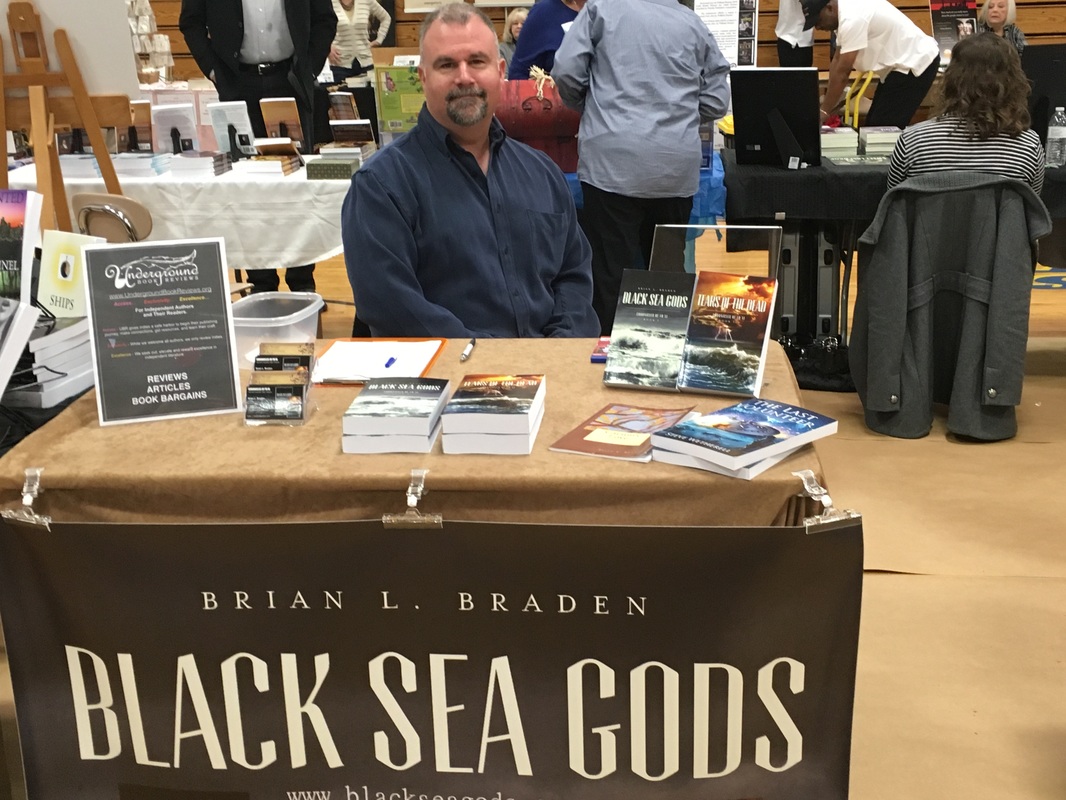(...or "why it's important to know the difference between a kidney and a spleen)I've finally started on the road to audiobook for both THE GOLDEN PRINCESS and BLACK SEA GODS. I've been hesitant to do so up to this point for several reasons. First of all, I didn't know how it all worked and I naturally fear change. Second, I didn't have the time to figure it out because I naturally fear work. Third, I knew it was likely to be expensive and I naturally fear spending money. With the help of government-funded therapy I've licked the first two hurdles. I've made some time to research the process, and asked the opinions of some smart people who have travelled this road ahead of me. I listened carefully to what they said, which was for me to give up writing and remember what it was like to live again. I told them I don't remember the taste of strawberries and they should get bent. But I digress. So...I've chosen a production company and narrowed down the list of potential narrators. By the way, I've also chosen a private jet and a villa in the Swiss Alps for, you know, when all the money starts rolling in. I did, however, run some figures and come up with a basic budget for making an audio book. There is only one small problem...how to pay for it all. Its good to have a budget. Its even better to have money. Scratch the villa and the private jet and focus on the audio book and how to pay for it. Option 1: Revenue sharing. Brutal truth time - if I were a narrator, I wouldn't agree to revenue sharing on any of my books. In fact, I'd laugh if I asked me to share my revenue on my books. I know that's harsh, but I know a lot of indie authors can sympathize with me (can I get an Amen from the crowd?) While I believe strongly in the caliber of my work (especially when I've been drinking), I just don't sell enough books (yet) to make revenue sharing attractive. I think, however, I could get a good narrator if I pay upfront. But it still leaves me with the conundrum of where to find the money. Option 2: Pay with cash from my day job. That money is already budgeted for real-life stuff, like food and kid stuff and air conditioning. Like many authors, I do not have much excess cash to spend on writing. On that note, people often liken writing to having a mistress. I strongly disagree. Other than being demanding and expensive like a mistress, they have nothing in common. A mistress is (optimally) sexy, and (usually) a secret. A mistress should also make you feel better (at least temporarily). (BTW, what the hell do you call a male version of mistress? A misteress? If a lesbian has a mistress, is she still a mistress? If a gay man has a mistress, is he a Mister Misteress?) I digress yet again. Writing, on he other hand, is just demanding and expensive. No, writing is less like a mistress and more like an old college buddy who is out of work and staying for "just a few days" until "he can catch a break." Your spouse knows all about him because he lives on her couch and she hates his guts and keeps asking when he is moving out because its time to move on and he is eating all the food and leaves beer cans all over the floor and scratches himself in from of the kids and the toilet won't flush and where the hell is the cat... Did I do it again? I did, didn't I? Back to the topic. Option 3: Sell one of my kidneys. I'm not sure either kidney is working at 100% capacity anymore. Option 4: Sell one of your kidneys. Wanna go grab a drink? Ah, never mind. It's too much of a hassle to keep all that ice in the motel bathtub. Last time I tried it, my Chinese blackmarket connection said I removed the spleen, not the kidney. I didn't get paid and was out like, 40 bucks for all the ice and whiskey. The incident did, however, convince my old college buddy to move out. Option 5: Crowdfunding. Crowd funding is a great idea for some things, like raising money for legal fees and getting former friends a new spleen. But getting the cash to fund an audio book does not qualify, at least in my mind, as justification to ask people for money, even if I give them something in return, like a slightly used spleen. I make no judgements on others who do so, but for me it feels like begging. Option 6: Hold a telethon. Unfortunately, no one under 40 knows what the hell a telethon is. Option 7: Sell a kid or two. Tempting... On one hand, I'd gain a new office, but then I'd lose the tax write-offs. I like those tax write-offs Option 8: Writing hardcore erotica under a pen name. My doctor said my heart wasn't healthy enough (but he said I have the spleen of a 20 year old. He's right, I do). Option 9: Lit Funding. Otherwise known as selling enough books to pay for the audio version. With the exception of all the other options I've listed, this the most realistic avenue to funding my audiobook. I've lit funded a cover or two. I've lit funded a lunch or two. But an audio book is another matter.
In order to make this happen I have to do some math. Since I don't like public math, I'm going to pull the curtain...I'll be right back. (whisper whisper carry the eight whisper whisper seven to the eighth power whisper whisper E equals Eminem squared whisper whisper....) I'm back. In order to pay for an audio version my latest novel I will have to sell 2,342 ebooks. That's just a teency weency (pinches fingers centimeter apart for effect) bit more books than I usually sell, like a 2430% increase in monthly sales. No problem. Bottom line, one way or another I'll find a way to finance the audio versions of my novels. Its just going to take patience and a reckless disregard for the law. In the meantime, you can help my buying or renting my novels on Amazon. Every little bit helps. If you've already read them, please rate or review them on Amazon. Believe it or not, the number of reviews on Amazon greatly helps in book sales. If you've already bought and reviewed my novels, please spread the word. If you've already done all this, thank you! I can't tell you enough how much I appreciate it. In fact, we should go out for a drink to celebrate. Say, I'm just curious, do you have both kidneys? *** Brian L. Braden is the author of three fantasy novels: THE GOLDEN PRINCESS, BLACK SEA GODS AND TEARS OF THE DEAD. It’s been a few weeks since my publishing group DeadPixel Publications collapsed. It was really a writers’ “collective,” for lack of a better word. It started as a group of talented authors banding together to help create and market their work. My time there was a completely positive experience. I learned a great deal, made a few friends, and found a few readers. Looking back, I should have seen the end coming. Why did it die? A few of my fellow DPP’ers have written excellent blogs about what went wrong, so I’m not going to cover that ground again. I’ll just summarize by saying we didn’t really have a plan. Lots of talent and good intentions, but no real plan. With the clarity of hindsight, I tried to capture some generic lessons I learned, and come up with what I would do if I had to generate a publishing collective from scratch. I came up with these Seven Basic Steps to creating a writers’ publishing group. Of course, these are very basic and definitely not applicable to all groups, as goals vary widely. Maybe they are too elaborate, maybe I overthought this, but if you’re going to do something, go big. So let's go big. 1. Like any organization, someone has to be in charge. This is the guy or gal with the vision, the man with the plan, the cat herder, the carrot and the whip. This is what the group’s leader has to do as a minimum: a. Create the brand. b. Focus the group to support that brand. c. Sets the rules d. Let’s people in & kicks them out. e. Have a plan. 2. Creating a brand starts with genre. The smaller the group, the more focused the genre must be. This is the very reason really big publishing houses have imprints. Genre is a basic component of brand identity. It’s what draws in the loyal followers. You can’t be all over the place, or you won’t attract new readers or readers from other authors. 3. Set rules and enforce standards. Yes, writing is a creative endeavor. However, when writers start hitching their wagons to each other’s novels a set of expectations is naturally established. It could be anything from “I share your post, you share mine” to “you beta-read for me, I beta-read for you.” Instead of guessing, and randomly asking or receiving requests for help, a better idea might be to formalize the process. You know, a a handbook, or something like it. This also relates to publishing standards for editing, cover design and anything else that goes into a book. If you enter a writer’s collective, you live by the rules. Otherwise, thanks and there is the door. If a group is going to set rules and enforce them, they would naturally start sharing skills, talents and workload. 4. Division of labor. Authors often get overwhelmed by everything involved with publishing a book. That’s why they often join author groups. When an author joins, its best if they know where they fit and what’s expected of them. Writers are a strange lot. The only thing common among us is the urge to write. However, this also means we have diverse talents, too. Some writers are good at editing, others at cover creation, etc. When a writer petitions to join the collective, their talents need to be identified immediately. Once that is done, they are assigned to a sub-committee. These sub-groups could include, but are not limited to: a. Manuscript management b. Concept development c. Editing and style guide d. Beta-reading & Workshop e. Pitch f. Marketing, Blogging, Social Media, and Website g. Cover design and art h. Recruiting Since the writers group is genre-focused, everyone comes with credible, applicable skills that lend to the whole. Of course, workload should be managed fairly, and might even include an agreed compensation scale. Hey, anything is possible depending what the group wants to do. Whatever you do, you need a formal process. One important note here about money. If money for services gets bandied about within the group, arrangements should be formalized and approved by the group ahead of time. Make no assumptions. 5. Establish a Process: Your group has a leader, a solid brand, and suitable tasks for everyone. When a writer joins your group, they know they have a host of other writers to help them every step of the way, and they know exactly where they fit in the plan. Now you’ve got to create processes that takes care of your writers’ manuscripts from induction to post-publication. Whatever the process, the leader acts as a project manager of sorts, keeping the machine running, with concepts going in one end, and finished novels coming out the other. The degree to which an author hands over production of his or her manuscript to the group, is set by the rules, with no doubts of expectations. 6. Communicate! None of this works without communication. There are two forms of communication writers are good at – creative collaboration and bullshitting on Facebook. No, I’m talking about formal, disciplined communication regarding the status of writing projects as they wind their way through the pipeline toward publication. Groups and sub-committees need to meet on reoccurring basis, to get and give updates on status of projects. 7. Track results. This goes along with formal communication. It means setting metrics and tracking them. “How was that last debut?” “How are our reviews?” “How are sales on our books after one year?” Authors often suffer alone and in silence, unable to determine if what they are doing is any good. The group needs metrics to measure if what they are doing is even working. You can’t capture lessons learned and improve without metrics and communicating those to the group. There you are, seven steps for creating an effective author writing group. If it sounds very “businessy,” it’s because it is. Authors spend enormous amounts of time writing a book, but usually screw something up during the publication process. Writing groups, if run properly, help us avoid the big mistakes, improve our craft and, maybe along the way, make some money. If you’re going to form or join a writing group, remember the purpose is to help you write better, edit better, better covers, better sales, better everything. That just doesn’t magically happen, it takes a plan. If you liked what you just read, please tell your friends by a like, share and tweet! You can also check out my latest book, the illusion exotic for only .99 cents. Its a gateway drug to my other writing, like my epic fantasy novel BLACK SEA GODS.
I'm back from Amelia Island a few books lighter and with several lessons under my belt. This was my first book signing event, and it went pretty smooth. I met a lot of fantastic authors and readers, and would definitely go again. However, there were a few bumps and are the lesson's learned in no particular order (some offered to me by fellow authors at the festival - thanks K'Anne!):
1. Tape. You'll need both scotch and duct tape. For what? Everything. 2. My banner worked great. I found mounting clips at Office Depot that worked good, but would have worked better with tape. I would have added a banner behind and above me, too. Those call more attention to your booth. 3. Change. I was scrambling the night before to get lots of ones. I think the lady at Publix thought I was getting ready to go to a strip bar. 4. Fish bowl or cookie jar for business cards and giveaway. I used an unsightly piece of disposable Tupperware. 5. NEVER WALK OUT OF THE HOUSE WITHOUT MY COFFEE MUG. 6. Attractive book ends and book display holders. (Duh! Its a book fest.) I even saw one author with a collapsable wire book rack. 7. Ask ahead of time about wi-fi. 8. If you are going to use your phone to take credit cards, have a portable phone charger. 9. Bring. Your. Own. Chair. It was at a middle school, and they must have given me the Timeout Chair. 10. Bring candy to hand out. 11. Bring small cooler with my own lunch, water and snacks. 12. Get one of those beach wagons to haul everything in and out. 13. Pens. 14. See-through plastic bags to put your book in. 15. Have your sales pitch ready to go in your mind and keep it simple. After a few deliveries I had mine down OK, but looking back I should have had it tighter. I got asked two basic questions: 1) What is the genre and 2) What is it about? I tried to keep each to one sentence. Well, that's about it. I'm going to try to make a few more book signings this year. I'll keep you posted here. Oh, yeah, weirdest question I got asked. "Do you know martial arts?" I will be at the Amelia Island Book Festival, Florida this Saturday, 20 Feb. Come on out and meet me, get a copy of one of my books, and find out about my company Underground Book Reviews.
Read More Here! In my latest Underground Book Reviews column, I talk about using UBR's unique features to network with other indie authors and expand your reader base. Here's an excerpt: “Three is a magic number. Yes it is, its a magic number. Somewhere in the ancient mystic trinity, you get three as a magic number…” If you’re old enough, you might remember an old Saturday morning cartoon called School House Rock. In the 1970s it educated young minds full of mush in between doses of Looney Tunes and Scooby Doo. One particular episode taught kids how to divide and multiply by threes. I like the number three, because for indie authors it really is a magical number. By exploring the unique opportunities Underground Book Reviews gives authors, you can take three marketing platforms and three readers and turn then into potential seed corn for a much wider audience. What does it take to give your novel "shelf appeal"? In my latest Underground Book Reviews column I discuss cover, synopsis and sample - the three key elements required to get your novel noticed and on its way.
Here's a excerpt: Readers have money and time to invest. Authors want readers to invest that money and time in their novel. Ever watch the show Shark Tank? Its kinda like that. You have to convince the reader to take a chance on your story. A novel’s cover, synopsis and first few pages are what seals the deal. Read the rest on Underground Book Reviews. Here's an excerpt from my latest article on Underground Book Reviews. If you're an indie author, it may be worth your time. We keep hearing that independently published books need a “filter”, a formal process to separate the serious novels from the not-so-serious. If this is true, who is qualified to provide such a filter? Not us, we’re just indie writers like you. Anyway, thousands and thousands of indie novels are published in the English speaking world every year. A formal process of sifting through all of them is daunting, to say the least.
Maybe a different tack is needed. Maybe indie novels don’t need a filter. Maybe indie authors need a standard. Welcome to the Underground Certified program. |
Archives
July 2023
Categories
All
|







 RSS Feed
RSS Feed